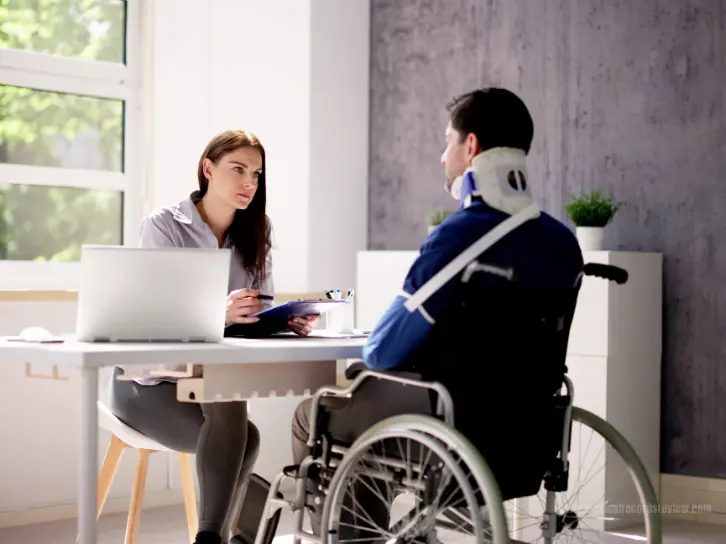Introduction: The Rising Tide of Boating Accidents in 2024
As waterways across the United States continue to see increased recreational traffic, boating accidents have become an unfortunate reality for many. In 2024, understanding the complexities of these incidents, from immediate medical needs to long-term legal considerations, is more crucial than ever. This comprehensive guide delves into the multifaceted world of boating accidents, offering invaluable insights for victims, attorneys, and medical professionals alike.
The Current Landscape of Boating Accidents
Before we navigate the legal and medical difficulties, let’s examine the current state of boating accidents in the United States:
· According to the U.S. Coast Guard’s 2023 Recreational Boating Statistics, there were 4,168 accidents that year, resulting in 613 deaths and 2,641 injuries .
· Alcohol use remains the leading known contributing factor in fatal boating accidents, accounting for 18% of total fatalities.
· The most common types of vessels involved in reported accidents were open motorboats (46%), personal watercraft (22%), and cabin motorboats (13%).
These statistics underscore the importance of understanding both the causes and consequences of boating accidents. In addition, integrating medication charts services can help improve safety and health management for individuals involved in boating activities, ensuring proper care and medication tracking in case of an emergency.
Immediate Steps After a Boating Accident
Stop the Vessel and Ensure Safety
The first priority in any boating accident is to prevent further harm:
· Make or drop vessel’s anchor following the order of operation.
· Safe and secure the safety of participants onboard
· Take off or put on life jackets if necessary
Provide Emergency Assistance
Respond to the needs of the individuals who were hurt:
· First Aid kits shall be used within their limits of exertion.
· If someone is in the water, throw floating rings to safe them
· Be careful when moving injured people to avoid causing further spinal damage
Call for Help
Contact authorities immediately:
· Use marine radio channel 16 (156.8 MHz) for emergencies
· Call 911 where a normal cell phone can be reached
· Activate emergency positioning indicating radio beacon (EPIRB) if available
Document the Scene
If it’s safe to do so, gather crucial information:
· Take photos of damage to all vessels involved
· Note weather and water conditions
· Collect contact and insurance information from all parties
Report the Accident
The reporting of boating accidents will usually be required by law under certain circumstances:
· Death or disappearance of a person
· Injury requiring medical treatment beyond first aid
· Property damage exceeding $2,000
Report to local law enforcement, state boating authority, or the U.S. Coast Guard within 48 hours for serious incidents, or within 10 days for less severe accidents.
Seeking Medical Treatment
Importance of Immediate Medical Evaluation
Even if injuries seem minor, seeking prompt medical attention is important:
· Some injuries, like internal bleeding or concussions, may not be immediately clear
· Documentation of injuries is crucial for potential legal claims
· Delays in treatment can be used by insurance companies to dispute the severity of injuries
Common Boating Accident Injuries
Be aware of the following frequently encountered injuries:
· Traumatic Brain Injuries (TBIs)
· Spinal Cord Injuries
· Fractures and Dislocations
· Hypothermia
· Near-Drowning and Respiratory Issues
· Lacerations and Soft Tissue Injuries
Long-Term Medical Considerations
Some boating accident injuries may have long-term impacts:
· Improvement needs for severe injuries
· Psychological trauma, including PTSD
· Chronic pain management
· Adaptive equipment for disabilities
As medical record review specialists, we would like to highlight the importance of thorough documentation throughout the treatment process to support potential legal claims.
Understanding the Legal Framework for Boating Accidents
Federal vs. State Jurisdiction
Boating accident cases can fail under various jurisdictions as follows:
• A federal admiralty law applies to the occurrence of an accident on a navigable waterway
• A state law extends to most inland rivers and lakes
• Some cases may also be subject to a combination of federal and state laws
Establishing Liability
The issue of negligence in boating accidents usually emerges as a primary fault:
• Operator mistake (speeding, careless actions, etc)
• Drug and alcohol consumption
• Failure to follow navigation rules
• Negligent up keeping of the boat
• Defective design and manufacture of the boat or other related items
Potential Liable Parties
Multiple parties may be held responsible in a boating accident:
· Boat operator
· Boat owner (if different from the operator)
· Rental companies
· Manufacturers of defective equipment
· Other boaters involved in the incident
Statute of Limitations
The time frame for filing a boating accident claim varies:
· Federal maritime law: 3 years from the date of the accident
· State laws: Generally 1-3 years, varying with regions It should be noted
It’s crucial to consult with an attorney promptly to ensure compliance with applicable deadlines.
Types of Compensation Available in Boating Accident Cases
Victims of boating accidents may be eligible for various forms of compensation:
Economic Damages
· Medical expenses (past and future)
· Lost wages and loss of earning capacity
· Property damage
· Rehabilitation costs
Non-Economic Damages
· Pain and suffering
· Emotional distress
· Loss of enjoyment of life
· Loss of consortium (for spouses)
Punitive Damages
In cases of gross negligence or intentional misconduct, punitive damages may be awarded to punish the wrongdoer and deter similar behaviour.
The Critical Role of Medical Records in Boating Accident Claims
While specializing in the medical record review for attorneys engaged in the legal profession with regards to boating accidents, we appreciate the importance of records of this nature::
Establishing Causation
Medical records help link injuries directly to the boating accident:
· Initial emergency room reports
· Diagnostic imaging results
· Treatment plans and progress notes
Documenting the Extent of Injuries
Comprehensive medical records provide a clear picture of the impact of injuries:
· Severity and prediction of injuries
· Required treatments and medications
· Therapy and supporting measures needs
Supporting Damage Calculations
Detailed medical documentation is crucial for accurately calculating damages:
· Current and projected medical expenses
· Impact on earning capacity
· Need for ongoing care or adaptive equipment
Case Studies: The Impact of Comprehensive Medical Documentation
Case Study 1: The Wake-Jumping Incident
Overview: A 28-year-old woman suffered a severe spinal cord injury when the boat she was riding in attempted to jump the wake of a larger vessel.
Challenges: The defense argument in the case was that the injury was elaborated and that its cause had a degree of relation to the pre-existing injury.
Solutions:
· Comprehensive medical record review revealed the full extent of the spinal cord damage.
· Expert analysis differentiated between the accident-related injury and pre-existing issues.
· A detailed chronology of medical events established clear causation.
Case Study 2: The Intoxicated Operator
Overview: A family of four was injured when their boat was struck by an intoxicated jet ski operator.
Challenges: There were multiple victims and injuries of varying complexities which affected the course of the case.
Solutions:
· Thorough review of each family member’s medical records quantified individual damages.
· Toxicology reports and expert testimony established the jet ski operator’s impairment.
· Long-term impact assessments for the children’s injuries supported future damages claims.
9. Preventive Measures and Safety Considerations
While understanding legal recourse is crucial, preventing boating accidents should always be the priority:
Operator Education
· Complete a boating safety course
· Understand and follow navigation rules
· Stay informed about local waterway conditions and regulations
Equipment Maintenance
· Regularly inspect and maintain all boat systems
· Ensure safety equipment is up-to-date and accessible
· Consider annual professional inspections
Responsible Boating Practices
· Never operate a boat under the influence of alcohol or drugs
· Maintain a proper lookout at all times
· Adhere to speed limits and wake restrictions
Weather Awareness
· Check weather forecasts before heading out
· Know the signs of approaching storms
· Have a plan for seeking shelter in adverse conditions
Conclusion
Boating accidents can have destructive consequences, both physical and financial. By understanding the immediate steps to take following an accident, the importance of comprehensive medical documentation, and the difficulties of the legal process, victims can better navigate the challenging waters of recovery and compensation.
As medical record review specialists, we play a crucial role in helping attorneys build strong cases for their clients. Our expertise ensures that every relevant medical detail is identified, analyzed, and effectively presented to support just compensation for boating accident victims.



